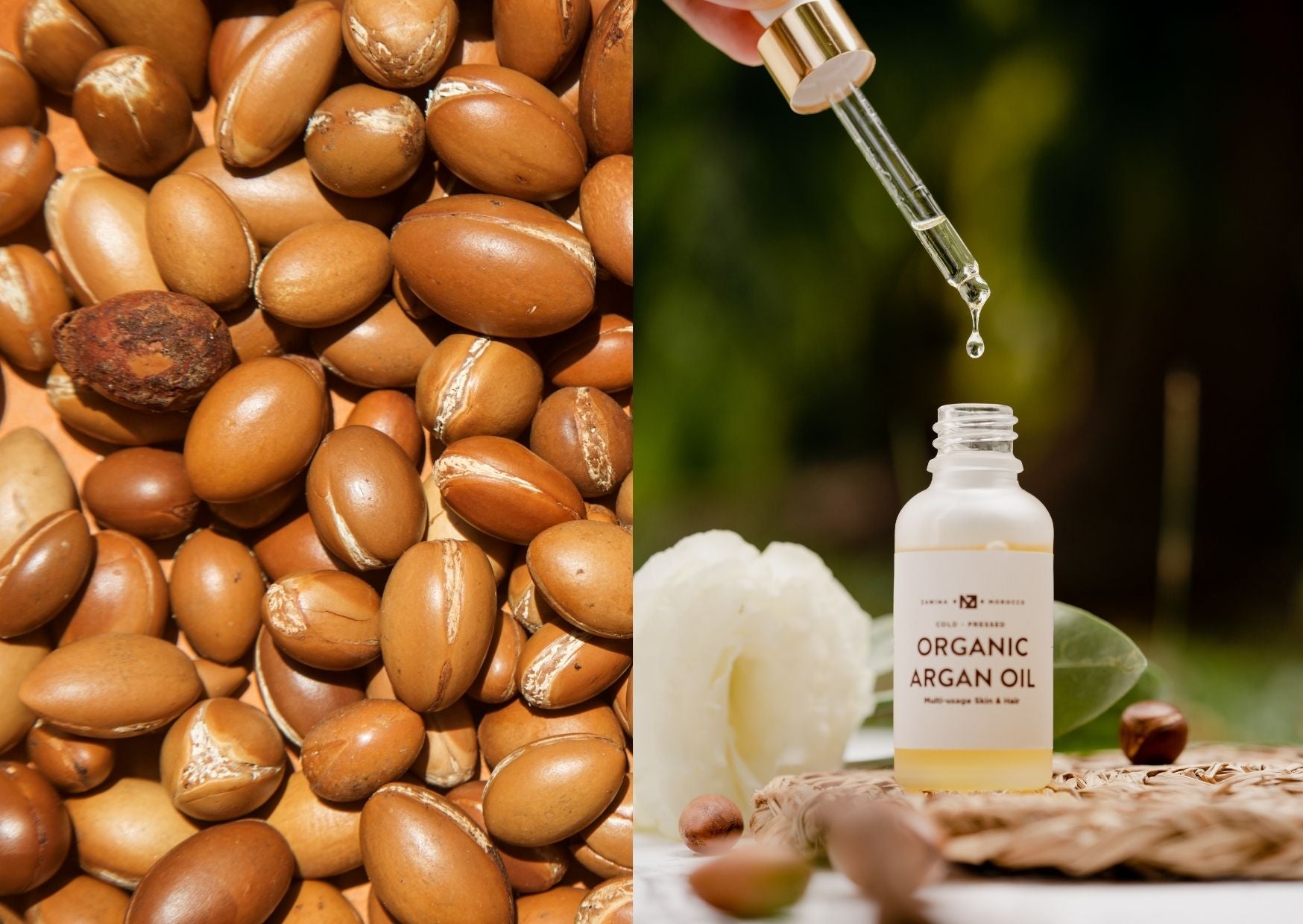Argan Oil has been magical for all skin types and is often called ''golden elixir''. How come this oil is so universal and is it really suitable for oily and acne-prone skin?
Does Argan Oil clog pores?
As you know, at Zawina Morocco we use Argan Oil as a key ingredient in all our products. Not only because it comes from our farm but also because it is a balancing oil. By now, you probably know that each face oil has its own properties, absorption rate and texture. While some facial oils are good for dry skin and others are good for acne, Argan Oil benefits all skin types. It has small molecule size and it's non comedogenic (rate 0), it has ability to balance the skin. It means that Argan Oil reduces sebum on oily skin and gives intense moisture to dry skin. It also has anti-inflammatory and anti-bacterial properties that helps to reduce acne inflammation and prevent future breakouts. You don't have to worry about clogged pores while Argan Oil. In fact Argan Oil is the most suitable oil for double cleansing method. Read more here.

What is in it?
How to use it?
When applied to the skin, Argan Oil acts like a barrier to keep moisture from evaporating out of your skin. So it’s best to apply it on either slightly damp skin—to trap all that water in your pores—or massage it on over your moisturizer (to lock in all of the hydrating ingredients).
It absorbs quickly, so you’ll be left with a subtle, glowing skin, rather than a greasy look. If you’re not a fan of dewy look during the day, though, try using it after washing your face at night, instead.
While shopping for Argan Oil, make sure you buy organic certified, cold-pressed and unrefined oil so your skin can benefit from healing properties of the oil. Mixed or bad quality Argan Oil can cause breakouts and skin irritations. Or you can avoid the trouble and purchase a fresh bottle here.

